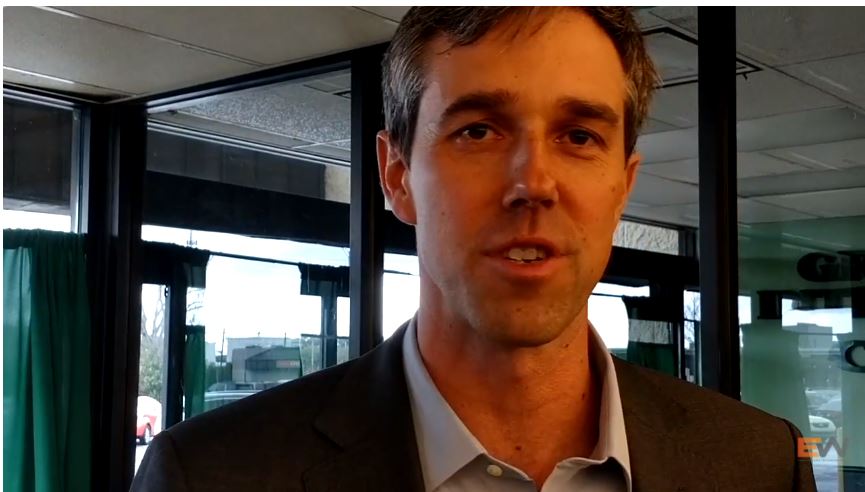Congressman Beto O’Rourke returned to Houston to host a Town Hall while out on the campaign trail. I gave him a short interview just before he went on stage.
Interview with Beto O’Rourke
Beto O’Rourke did not have much time for the exchange, but it was clear that he is always willing to talk and push his message.
I asked Beto why he is running. He said he is running for US Senate to represent everybody in Texas. I then asked him why he believed he could win in Texas, a supposedly deep red state.
“My hunch is that it’s not a red state,” said Beto.. “iI’s a non-voting state. And if given a chance, I’m able to do the right thing for Texas. Most Texans are going to do that. So I’m here to listen to those that I want to represent in Greenspoint today.”
Beto said he has campaigned in 206 out of the 254 counties in Texas. He said he would listen to people in all corners of Texas. I asked him about his stance on healthcare.
“I want to make sure everybody can see a doctor, a provider,” Beto said. Afford their medication. Live their lives Live to their full potential Do what they were intended to do and give back in the biggest possible way to their community, to their country. And you probably do that when you’re healthy enough to do that. So we need universal health care.”
Note he did not say Medicare for all. When I asked if he supported it, he said the following.
“I like Medicare for all,” Beto said. “It’s one option, but I’m open to anyways it gets us there. And we’re gonna have to find a way to work with Republicans and Democrats alike ultimately to achieve that. So I’m gonna keep an open mind but
the goal has to be universal health care.”
Beto is not an absolutist on Medicare for all single-payer as most Progressives are. His answer was clear; he will accept and push for anything that works.
Later in the question and answer period, a potential constituent made Beto clarify his position. It was evident he understood why Medicare for all is the best option and his open-mindedness is more of a negotiating tactic. After all, he pointed out the fact that Medicare overhead is 2%. Private insurance is north of 17%.

